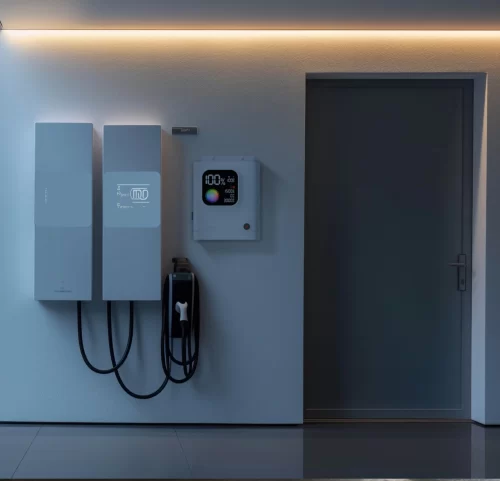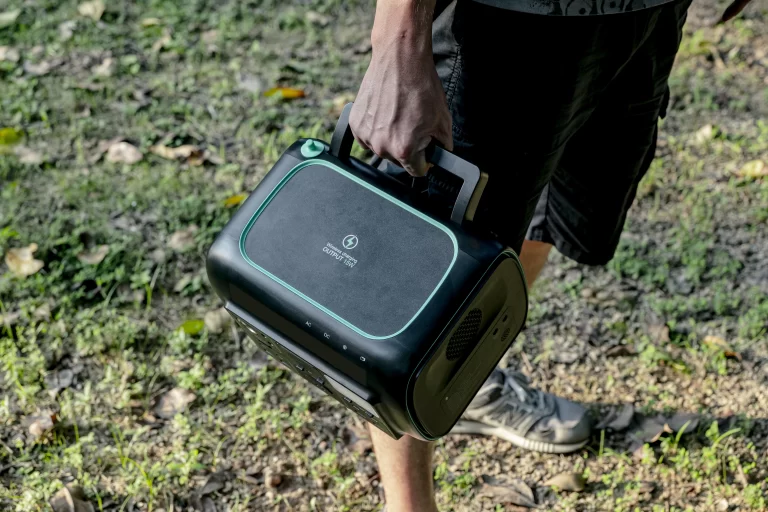In today’s pursuit of green energy and self-sufficiency, solar home energy storage systems are becoming the ideal choice for many households. As the core component of these systems, the market for solar energy storage inverters is growing at an impressive rate. Not only is it responsible for converting the direct current (DC) generated by the solar panels into AC power for home use, but it also intelligently schedules the storage batteries to the power grid. However, compatibility issues are often a key factor that should not be overlooked when selecting a suitable inverter from a wide range of brands and models. In this article, we take an in-depth look at compatibility issues and offer practical advice to help you make an informed choice.

The Importance of Compatibility
Compatibility refers to how well an inverter matches solar panels, battery storage systems, and other household appliances. A highly compatible system ensures efficient energy conversion and a stable power supply, being the cornerstone of building a reliable and efficient solar home energy storage system. Conversely, poor compatibility can lead to wasted energy, reduced equipment performance, and even safety hazards.
Consideration 1: Solar Panel Matching
First and foremost, the inverter must be a perfect match for your solar panel system. Different brands and models of solar panels may have differences in voltage and current output characteristics, so the inverter’s input parameters (e.g., maximum DC voltage, maximum power point tracking range) must cover and accommodate these differences. Ensuring that the inverter can efficiently and stably receive and convert the power generated by the solar panels is the first step towards optimizing the overall performance of the system.
- Maximum DC Voltage: The maximum DC input voltage that the inverter should support must be higher or equal to the maximum output voltage (Voc) of the solar panels under standard test conditions. For instance, the Alpha 3000 inverter supports a maximum DC input voltage of 150V, which can cover the needs of most solar panels on the market.
- Maximum Power Point Tracking (MPPT) Range: MPPT technology optimizes the output power of solar panels. The Alpha 3000 inverter’s MPPT operating voltage range is 30-120V, efficiently matching solar panels within this range to achieve maximum power output.
- Input Power Rating: The input power rating of the inverter (e.g., 1500W for the Alpha 3000) should match the total power of the solar panel system to ensure that the inverter can handle the full amount of power from the solar panels.
Consideration 2: Battery Storage System Compatibility
The storage battery is another central component of a solar home storage system, with compatibility being equally important. The inverter must be able to communicate with and control various types of storage batteries (e.g., lithium-ion, lead-acid) to ensure safety and high efficiency during battery charging and discharging. Additionally, the inverter’s management strategy for battery pack voltage and current must match the battery characteristics to prevent overcharging, over-discharging, and other damage to battery life.
- Battery Type: The inverter should support various types of storage batteries, such as lithium-ion batteries (e.g., LiFePO4), lead-acid batteries, etc. The Alpha 3000 inverter is designed specifically for LiFePO4 batteries and has a management strategy that aligns with their characteristics.
- Battery Pack Voltage and Current: The inverter should manage the voltage and current of the battery pack to prevent overcharging and overdischarging, which can reduce battery life. The Alpha 3000 inverter is designed to work with battery pack voltages ranging from 40-58.4V DC, ensuring compatibility with the specific battery type.
- Communication and Control: The inverter must communicate with the battery management system (BMS) to monitor the battery status in real-time, ensuring safe and efficient charging and discharging processes.
Consideration 3: Compatibility with Home Grid and Electrical Appliances
Integrating solar power into the home grid is a vital function of solar home energy storage systems. Therefore, the inverter must comply with national or regional grid access standards, including automatic switching between on-grid and off-grid modes. This capability means the inverter can detect the grid’s state, prioritize supplying power to the grid when it is operational, and automatically switch to off-grid mode during grid failures to ensure the continuity and safety of home electricity consumption.
In addition to the aforementioned compatibility, the inverter must also be compatible with home appliances. Modern appliances are often designed with multiple power input options, but not all inverters can accommodate these needs. Thus, understanding the power requirements of home appliances is crucial before purchasing an inverter.
- Grid Access Standards: The inverter must adhere to national or regional standards regarding output voltage, frequency, and harmonic content. The Alpha 3000 inverter, with an output voltage of AC 220V ±10% at 50Hz, meets most national and regional grid standards.
- Grid-Connected and Off-Grid Switching: The inverter should automatically switch between grid-connected and off-grid modes to ensure continuous and safe home electricity consumption. The Alpha 3000 inverter can detect grid status and automatically switch to off-grid mode in the event of a grid failure.
- Compatibility with Electrical Appliances: The inverter must be compatible with home electrical appliances, particularly modern ones with higher power input requirements. The Alpha 3000 inverter outputs a pure sinusoidal waveform, with a rated power of 3,000W and a surge power of 6,000W, capable of meeting the power needs of most household electrical appliances.
Consideration 4: Compatibility with Software and Monitoring Systems
As smart homes become more prevalent, an increasing number of solar home energy storage systems are incorporating intelligent control systems for remote monitoring and management via mobile apps or web platforms. At this juncture, the inverter’s smart control functions and communication protocol compatibility are especially important. Ensuring the inverter supports mainstream communication protocols (e.g., Modbus, CAN, Wi-Fi, Bluetooth) and integrates seamlessly with smart home platforms will significantly enhance user experience and system management convenience.
- With its accompanying app, the Alpha 3000 allows users to monitor key data such as daily carbon savings, total carbon emissions, and daily power consumption and generation from anywhere at any time. This intelligent monitoring not only improves the user experience but also makes the entire solar home energy storage system more intelligent and convenient.
V. Compatibility for Future Expansion and Upgrading
Lastly, considering that the solar home energy storage system may require expansion or upgrading as electricity demand grows or technology evolves, choosing an inverter with good future compatibility is essential. This implies that the inverter should support a modular design facilitating the addition of new solar panels or storage batteries, and its software and firmware should be upgradable to accommodate new technologies or standards.
- The Alpha 3000 inverter supports a wide range of expansion components, such as solar panels, backup batteries, and external adapters, offering diverse solutions to users. Moreover, its software and firmware are upgradeable to keep pace with technological advancements and meet emerging technical standards and requirements.

When selecting a solar home energy storage inverter, compatibility is a fundamental consideration that leads to the construction of an efficient and safe system. By analyzing various compatibility factors, including communication protocols, intelligent control, and future scalability, we aim to guide you towards a stable, reliable, and scalable energy storage solution for modern households.
Looking ahead, with the rapid advancement of solar technology, we anticipate that solutions to compatibility issues will become increasingly sophisticated and comprehensive. This progress will promote the widespread application of solar home energy storage inverters and contribute to building a green and sustainable lifestyle. This article aims to disseminate key knowledge on inverter compatibility, providing readers with robust support in the decision-making process. Ensuring that the chosen inverter maximizes energy efficiency while also safeguarding the safety and comfort of you and your family over the long term, let’s build a green future together, starting with selecting a compatible solar home storage inverter.




